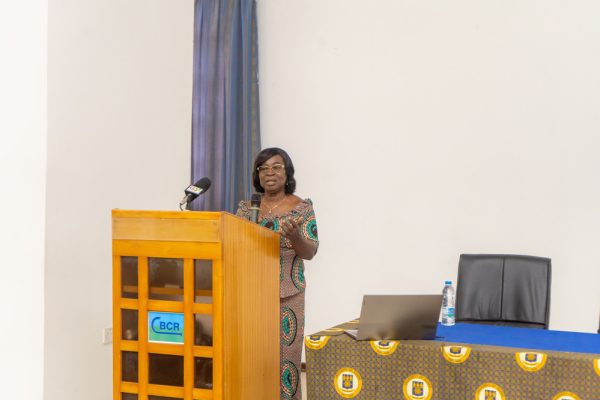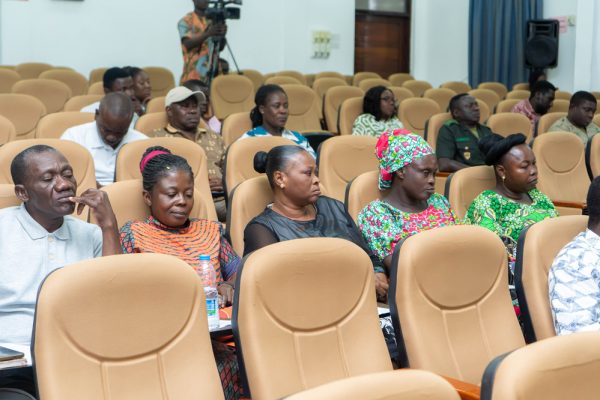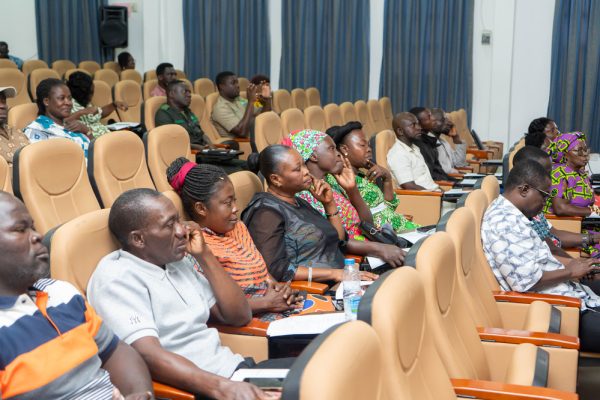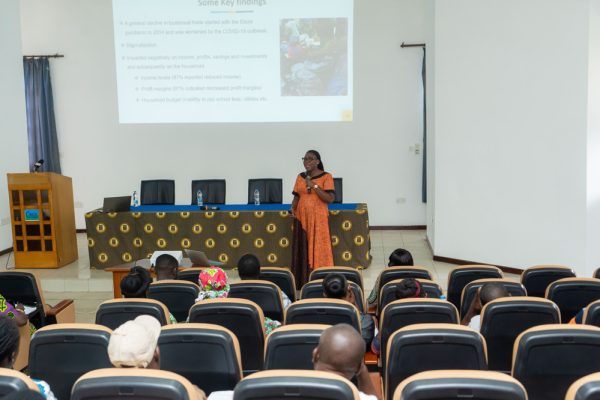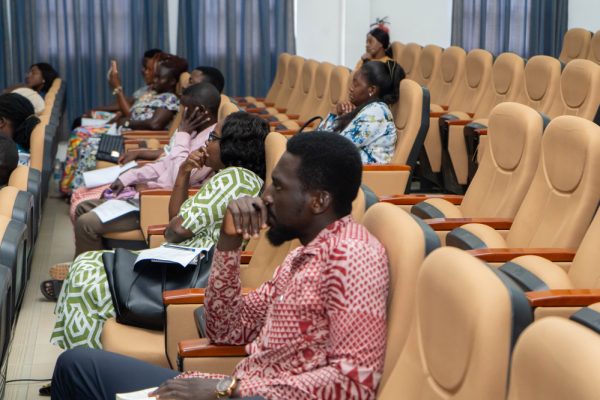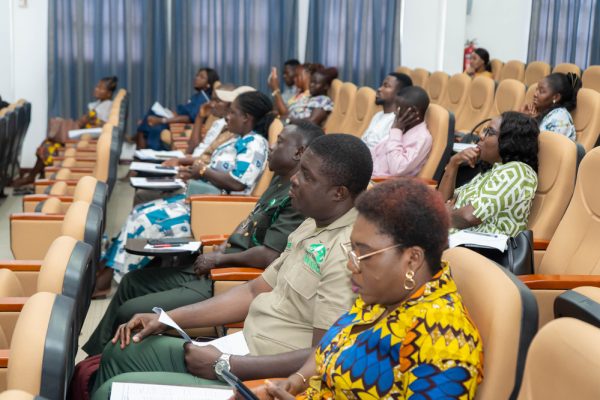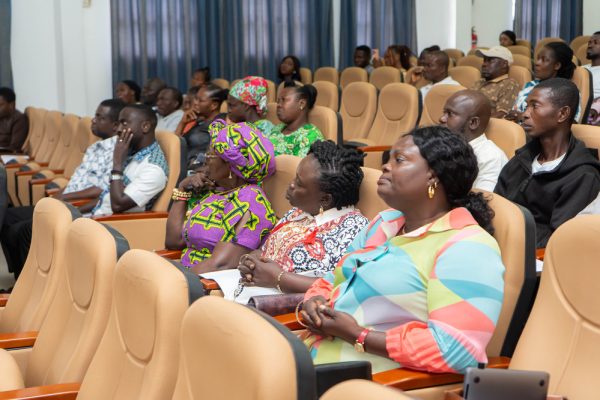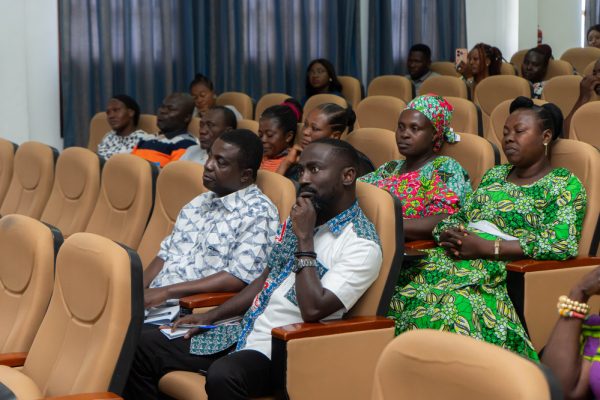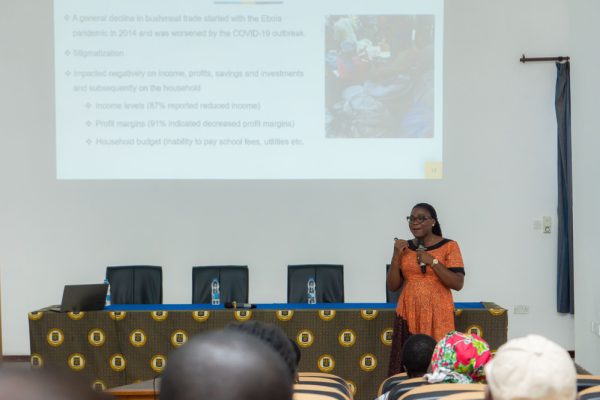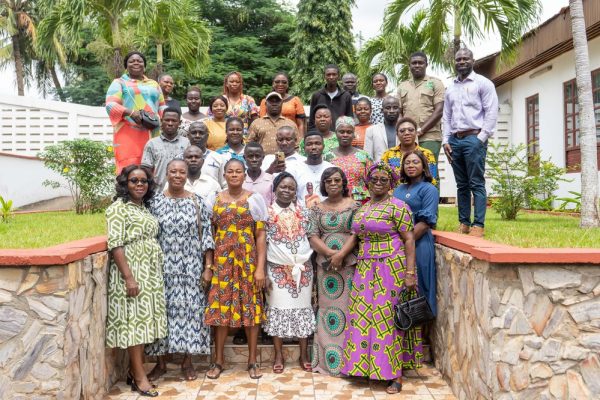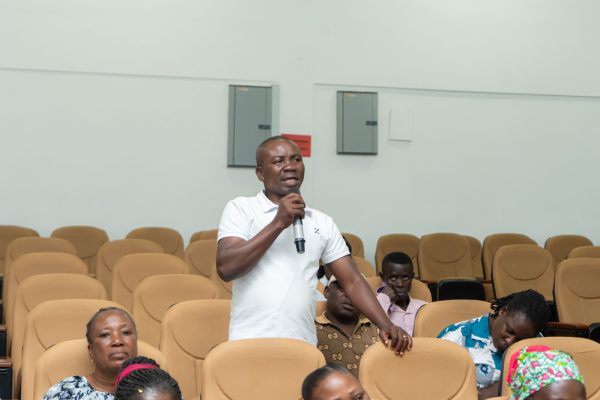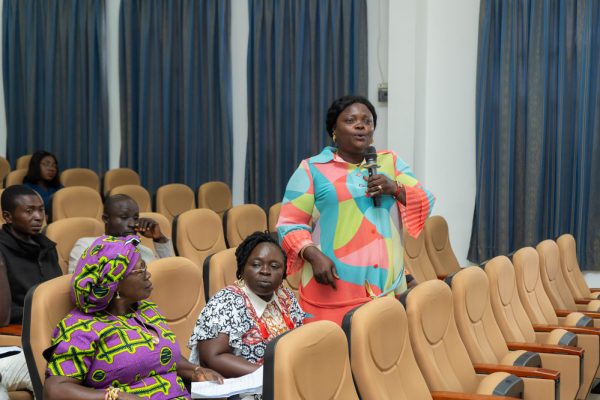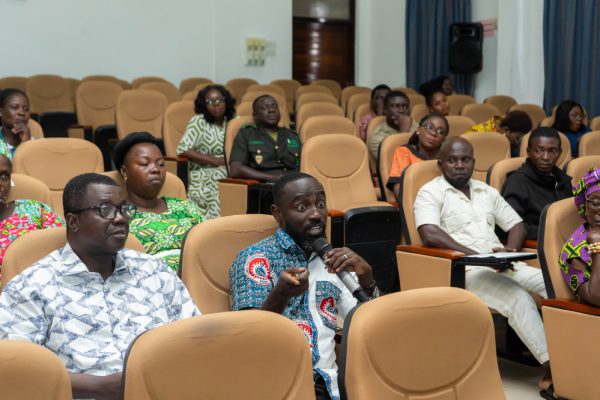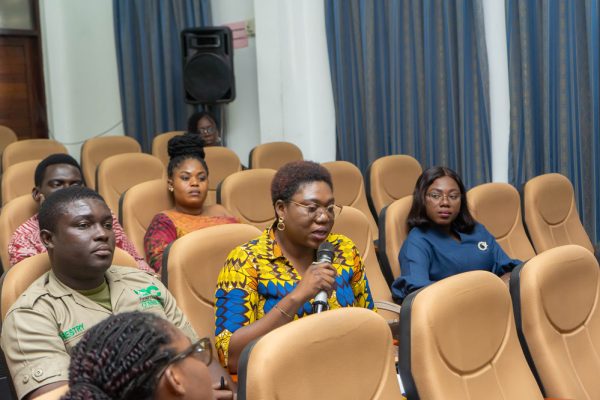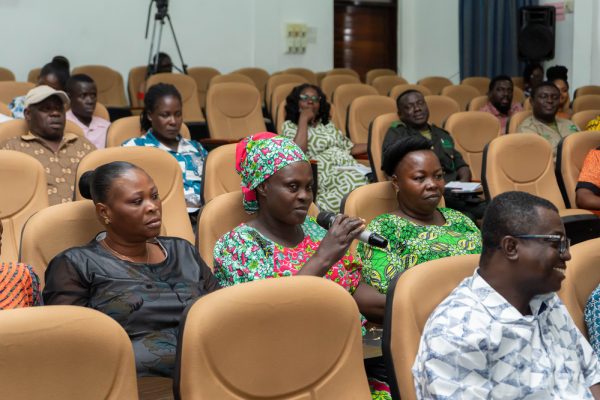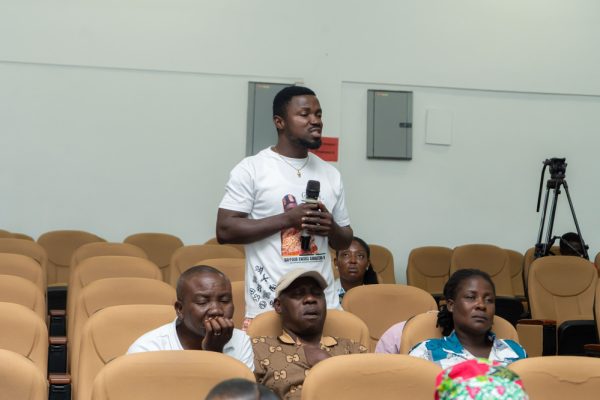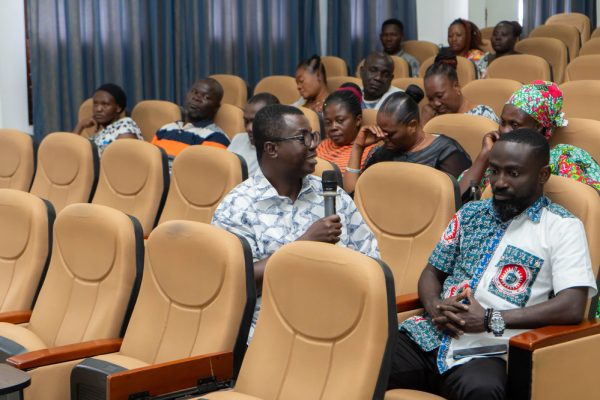The COVID-19 and Ebola pandemics have significantly impacted Ghana’s bushmeat trade, exacerbating existing challenges. Illegal mining has also contributed to the decline of the industry. To address these issues, the Centre for Biodiversity Conservation Research at the University of Ghana convened a stakeholder meeting.
Meeting Objectives:
1.Provide updates on the 2-year project focused on women in the trade and male hunters.
2. Establish a national bushmeat association to unify policy formation.
Stakeholders Involved:
1.Forestry Commission
2.Council for Scientific and Industrial Research (CSIR)
3.Trade Industry
4.Gender Ministries
5.Women traders and male hunters
Research Findings:
A nationwide study revealed a general decline in the bushmeat trade starting from 2014 from the outbreak of Ebola and also from the COVID-19 pandemic.
The bushmeat trade in Ghana is facing significant challenges, impacting the livelihoods of those involved, including hunters and traders. The decline in investments and savings, coupled with decreased household incomes and profits, has led to financial constraints, making it difficult for families to pay school fees and utility bills.
Mr. Evans Osei, a hunter, shared his concerns about the devastating impact of galamsey and chainsaw operators on the business, making it unattractive. The Queen mother of Atwenom bushmeat traders association in Kumasi highlighted the economic value of the business, which has been a family legacy, supporting her children’s education and well-being.
To address these challenges, experts Dr. Fedelia Ohemeng and Dr. Kofi Amponsah-Mensah emphasized the need for policy direction to protect livelihoods from infectious diseases transmitted by animals. In response, the Bushmeat Hunters and Traders Association – Ghana (BUHTA) was established, with interim executives appointed to meet regulatory requirements and advocate for government support.
Key Challenges Facing the Bushmeat Trade:
The decline in investments and savings, coupled with reduced household incomes and profits, has led to significant financial constraints. Additionally, the activities of illegal mining (galamsey) and chainsaw operators have exacerbated the situation, increasing the risk of infectious diseases transmitted by animals.
Proposed Solutions:
The policy direction aims to protect livelihoods through the establishment of BUHTA, an organization dedicated to advocating for the industry. This includes the creation of a clear vision and mission statement for Bushmeat Traders and Hunters Association, Ghana (BUTHA Ghana), as well as promoting alternative income sources and educating stakeholders on sustainable practices.
By understanding the complexities of the bushmeat trade and its impact on local communities, we can work towards finding sustainable solutions that balance economic needs with conservation and public health concerns


